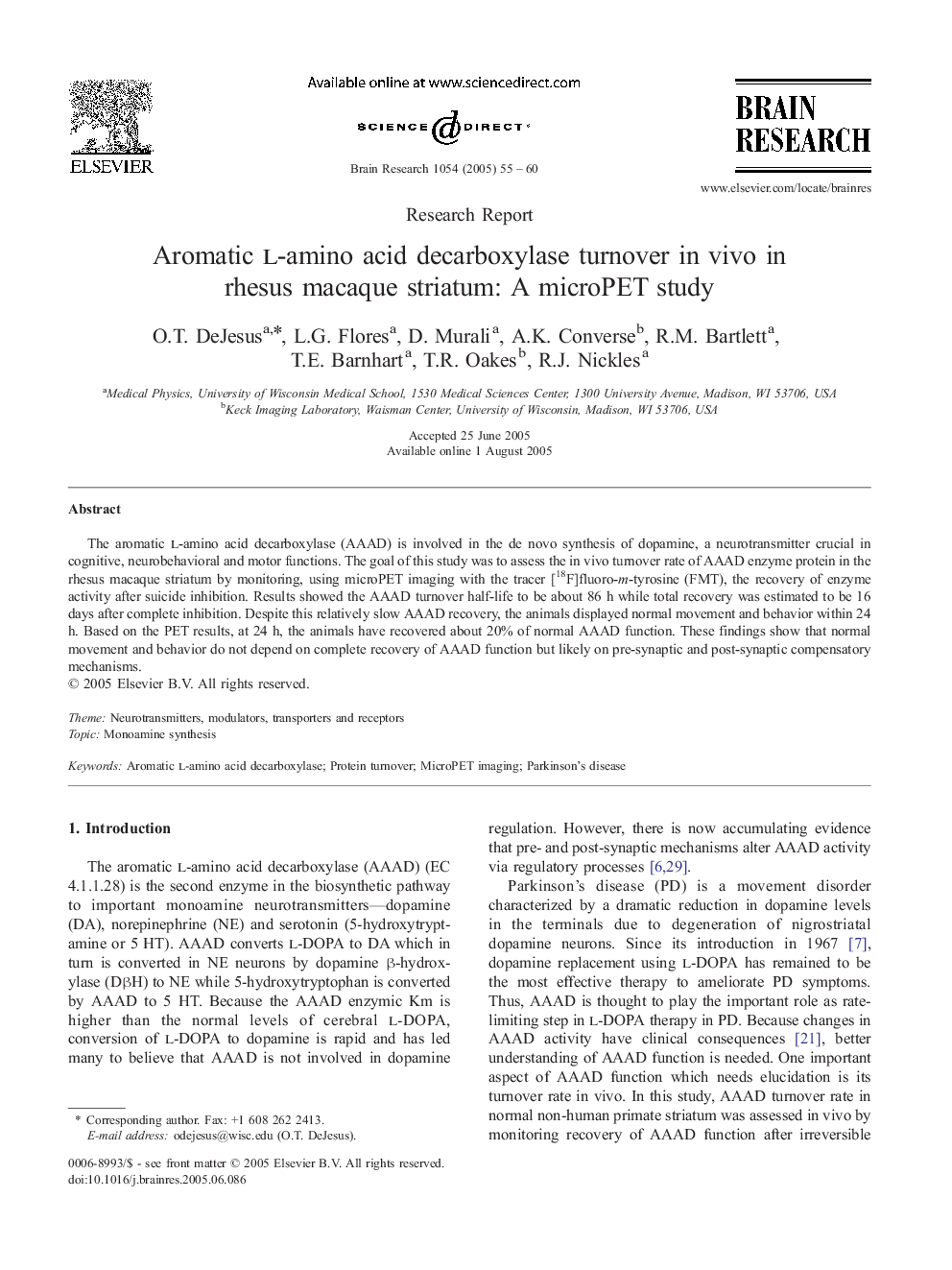| Article ID | Journal | Published Year | Pages | File Type |
|---|---|---|---|---|
| 9416106 | Brain Research | 2005 | 6 Pages |
Abstract
The aromatic l-amino acid decarboxylase (AAAD) is involved in the de novo synthesis of dopamine, a neurotransmitter crucial in cognitive, neurobehavioral and motor functions. The goal of this study was to assess the in vivo turnover rate of AAAD enzyme protein in the rhesus macaque striatum by monitoring, using microPET imaging with the tracer [18F]fluoro-m-tyrosine (FMT), the recovery of enzyme activity after suicide inhibition. Results showed the AAAD turnover half-life to be about 86 h while total recovery was estimated to be 16 days after complete inhibition. Despite this relatively slow AAAD recovery, the animals displayed normal movement and behavior within 24 h. Based on the PET results, at 24 h, the animals have recovered about 20% of normal AAAD function. These findings show that normal movement and behavior do not depend on complete recovery of AAAD function but likely on pre-synaptic and post-synaptic compensatory mechanisms.
Keywords
Related Topics
Life Sciences
Neuroscience
Neuroscience (General)
Authors
O.T. DeJesus, L.G. Flores, D. Murali, A.K. Converse, R.M. Bartlett, T.E. Barnhart, T.R. Oakes, R.J. Nickles,
